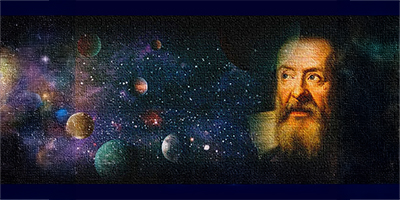Galileo Galilei (1564-1642) is often considered the "father of modern science" for his innovative approach to scientific observation and for his fundamental discoveries. Known for his studies in astronomy, physics, and the scientific method, Galileo had a lasting impact on our understanding of the universe.
One of the most significant moments of his career was the use of the telescope, an instrument he perfected and used to observe the sky. Through these observations, he discovered the phases of Venus and the moons of Jupiter, thus demonstrating that not all celestial bodies orbit the Earth, as was believed at the time. These discoveries were crucial in supporting Copernicus's heliocentric theory, which posits that the Sun, rather than the Earth, is at the center of the solar system.
Galileo found himself in conflict with the Catholic Church over his revolutionary ideas. In 1616, the Church declared heliocentrism to be heretical, and in 1633 Galileo was tried by the Inquisition. Although he was initially sentenced to death, the sentence was commuted to house arrest. During this period, he continued to work and write, producing important works such as "Discourses and Mathematical Demonstrations Relating to Two New Sciences."
His determination to defend his scientific discoveries and his ability to communicate complex ideas made him a central figure in the history of science. Today, his work is recognized as a milestone that paved the way for the development of modern science and for a new approach to the scientific method based on observation and evidence.
 IT
IT  US
US  UK
UK  DE
DE  FR
FR  ES
ES  NL
NL  PL
PL  SE
SE  JP
JP 




